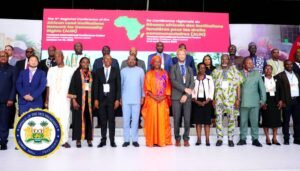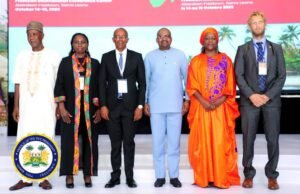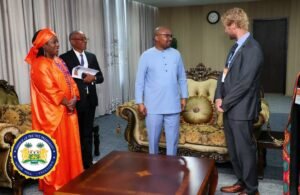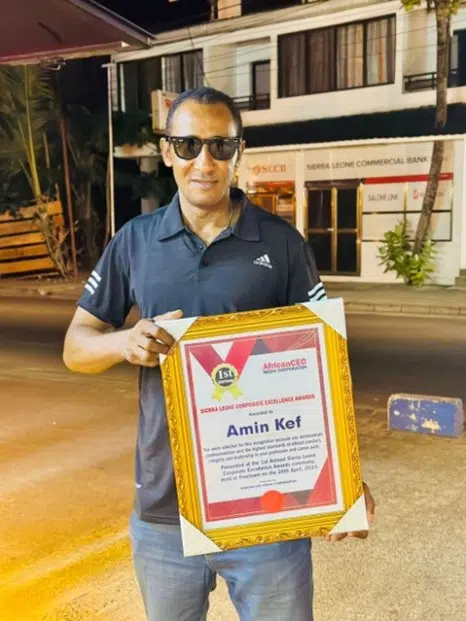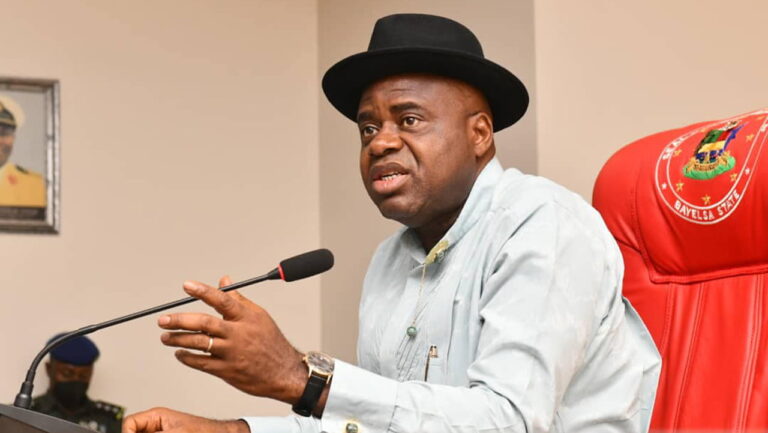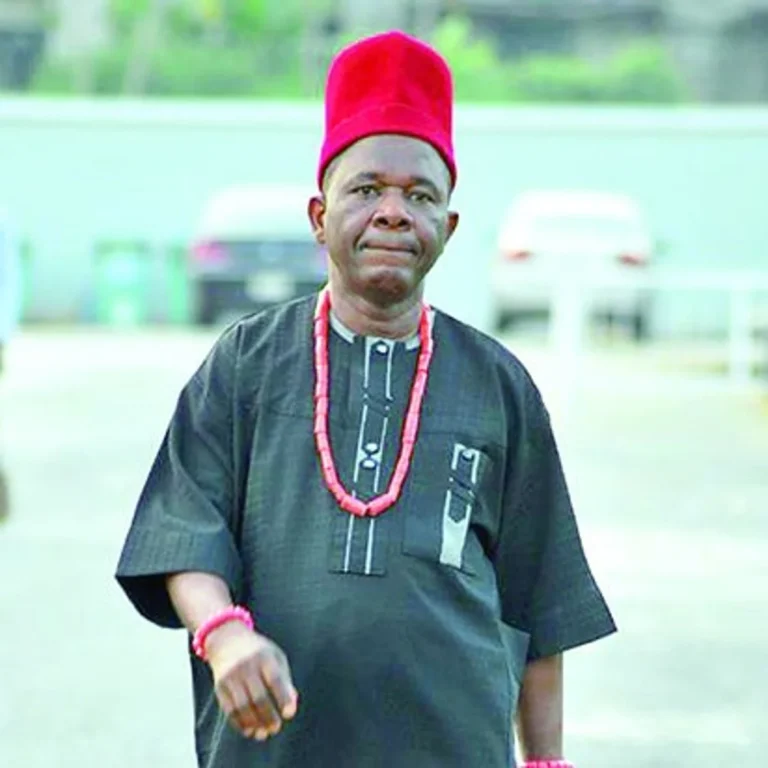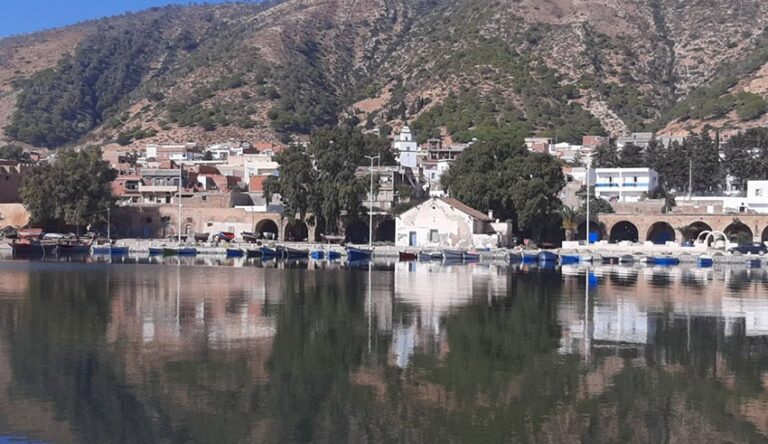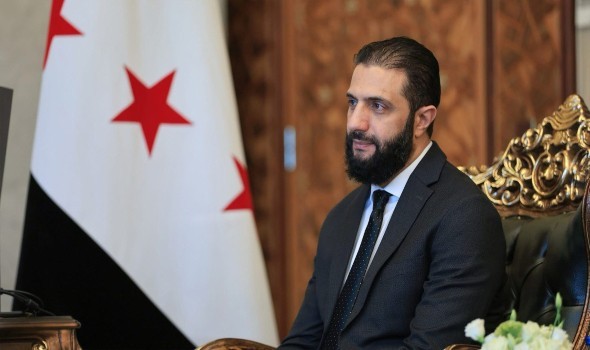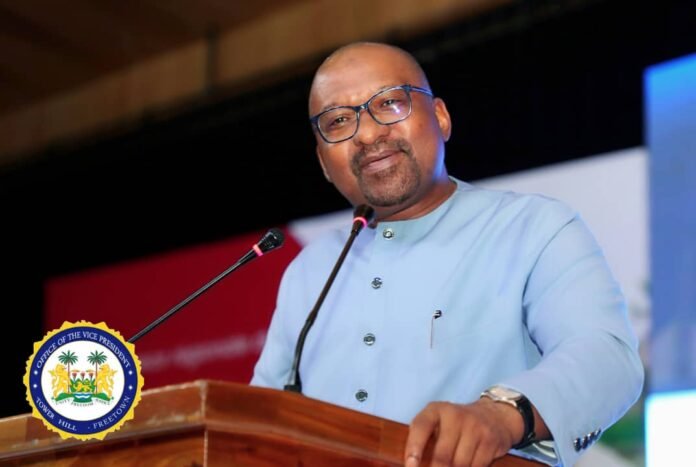
By Amin Kef (Ranger)
Sierra Leone’s Vice President, Dr Mohamed Juldeh Jalloh, has called for a renewed continental commitment to land governance and community land rights, describing them as “one of the most important issues for generations to come.”
He made this statement on behalf of His Excellency President Dr. Julius Maada Bio at the opening of the 5th Regional Conference of the Africa Land Institutions Network for Community Rights (ALIN), held at the Bintumani International Conference Centre in Freetown on Tuesday, 14th October 2025.
The high-level regional forum brought together government representatives, traditional leaders, international development agencies, and experts from across Africa to discuss sustainable strategies for securing community land rights and promoting inclusive land governance across the continent.
Vice President Jalloh noted that Sierra Leone was honoured to host the continental dialogue at a time when Africa faces increasing challenges in balancing investment, community rights, and environmental sustainability. “For us in Sierra Leone, it is a privilege to showcase the progress we have made in land governance,” he said.
He commended the Minister of Lands, Housing and Country Planning, Dr. Turad Senesie, and his deputy for redefining the Ministry’s purpose, emphasizing that “the Ministry of Lands is not about selling land—it is about land governance.”
The Vice President highlighted that Sierra Leone has enacted groundbreaking legislation in recent years, including the Customary Land Rights Act 2022 and the National Land Commission Act 2022. These laws, he said, have been recognized internationally as models for inclusive and transparent land management.
“Sierra Leone continues to pass and implement progressive land laws,” Dr. Jalloh stated, adding that the government is advancing digital transformation initiatives to make land administration more efficient and accountable.
Despite the achievements, Dr. Jalloh acknowledged that Africa still faces enormous challenges, including weak policy environments, limited technical and financial capacity, and overlapping land claims.
He cited a 2023 World Bank report estimating that Africa loses nearly $100 billion annually due to poor land administration and corruption. “These realities make platforms like the ALIN conference critical for sharing experiences and developing new strategies to secure land rights and promote sustainable development,” he said.
Dr. Jalloh also identified two pressing global trends shaping Africa’s land governance landscape — declining international aid and the growing impact of climate change.
“Development assistance windows are closing,” he observed. “African nations must therefore strengthen domestic revenue mobilization and promote investment and trade to boost production. At the core of unlocking the potential of our productive sectors is land governance.”
On climate change, he warned that the continent faces increased competition for fertile land and rising displacement caused by environmental degradation. “The challenge is how to turn potential sources of conflict and poverty into renewed opportunities for livelihood, support, and investment,” he noted.
Dr. Jalloh reaffirmed Sierra Leone’s commitment to regional and continental cooperation on land governance. He emphasized that Sierra Leone’s reforms are aligned with the African Union Framework and Guidelines on Land Policy in Africa and the Voluntary Guidelines on the Responsible Governance of Tenure (VGGT) adopted by the Food and Agriculture Organization (FAO).
“This conference is a major step in our collective effort to promote viable land governance across the African continent,” he said. “It provides a unique opportunity to exchange ideas, assess institutional performance, and chart a new course for sustainable land reform.”
In conclusion, the Vice President expressed optimism that the deliberations would strengthen Africa’s resolve to secure community land rights and foster equitable growth. “Make no mistake,” he declared. “Land governance is, and will continue to be, one of the most important issues for generations to come.”
The conference continues through the week, featuring expert panels, technical workshops, and experience-sharing sessions among member states of the Africa Land Institutions Network for Community Rights.
